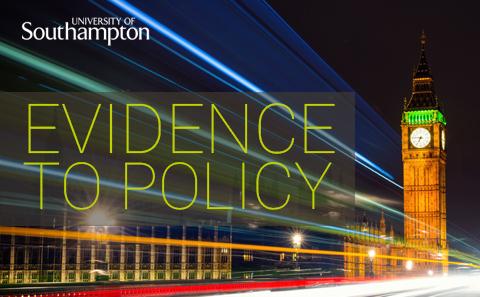
Read more from SMMI researchers
Learn more from Professor Mikis Tsimplis about the the sustainable development of our oceans

The climate system is complex and non-linear, a characterisation familiar to scientists and mathematicians but most easily recognised by policymakers in extreme weather events that unfold from time to time, superimposed on gradual climate change. Most recently, two major hurricanes caused large-scale devastation across the Caribbean. While such events may be related to changing climate, they are also an inevitable consequence of “natural” variability, although the impacts may be exacerbated through some aspects of climate change such as an intensified hydrological cycle (more intense rainfall) and sea level rise (higher coastal surges). These natural disasters elicit a range of responses from media, governments, society and business. Urgent responses to humanitarian need are followed by long-term reconstruction projects, and sometimes a necessary degree of institutional/societal change. This is a very real adaptation to climate change.
While adaptation is often perceived as a gradual progression, extreme events provide a catalyst for more urgent adaptation. In simple terms, these events probe for weak spots in regional infrastructure, demanding solutions. In reconstruction and recovery from such events, we may encounter opportunities to re-think and future-proof that infrastructure, developing more resilient communities, networks and policies.
To explore these issues, the Southampton Marine and Maritime Institute (SMMI) has funded a scoping project “The Atlantic Hurricane Season 2017: Context, Impacts and Long-term Recovery”. With this project, we want to develop a blueprint for long-term recovery that integrates sustainable re-building of infrastructure, social recovery and growth, resilience, and governance. The blueprint will be informed by data from the recovery phases for previous disasters around the world. We have started discussions with the Climate Change team from The Commonwealth Secretariat and have identified Antigua and Barbuda as a possible focus of our project, where hurricane damage was extensive.
Project Activities: We will contextualize the events and aftermath of the 2017 Atlantic hurricane season in the Caribbean, building on disciplinary strengths across the University of Southampton, with an initial scoping exercise to cover:
To achieve the highest possible impact, this project requires interdisciplinary working. Therefore, the next step will involve discussions with experts from different disciplines to develop an integrated conceptual-hierarchical model that captures interdependencies of drivers and associated data/information structures and flows. We seek engagement with colleagues across disciplines i.a. Biological Sciences, Geography, Social Science, Business, Law, Geosciences, Coastal Engineering, Humanities and Healthcare. This wider scoping is a major objective of the project. We would be very interested to hear from any academics, researchers and students across the University with relevant expertise and interests.
If you would like to get involved in any way, please contact us via email.
Robert is Professor in Oceanography and Climate, Head of Physical Oceanography Research Group

Learn more from Professor Mikis Tsimplis about the the sustainable development of our oceans

Catch up with past articles from researchers at the University of Southampton